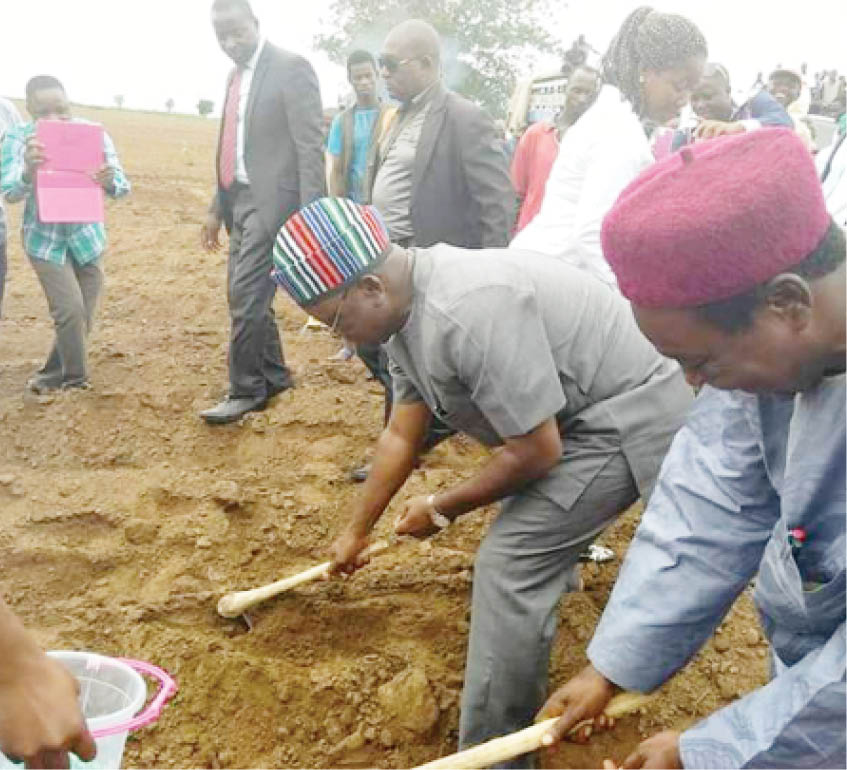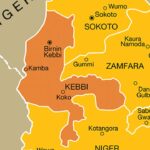Farmers in Benue State, who are engaging in multiple cropping, believe that agro-industrialisation is possible in the state, usually called the “Food Basket of the Nation.”
Some of them, in an interview with our correspondent in Makurdi, said that massive cultivation of crops, for which the state possesses natural endowment to thrive, could spin the needed agricultural revolution for development.
A big farmer, Thomas Unongo, said the state had both the comparative and competitive advantages because of its rich soil and other climatic factors to lead the agricultural growth.
Unongo, who is the Director of Agricultural Science at the state’s Ministry of Agriculture and Natural Resources, urged farmers to key into the newest trend to agro-industrialise the state by cultivating good seeds for increase harvest.
“Cultivation of improved crop seeds in Benue State, reputable seed companies and other certified out-growers has the advantage of very high yield, drought tolerant, pests/diseases resistant, among several other desirable traits.
“Foundation and some hybrid seed varieties can give an output of over 8 tonnes per hectare. This is applicable to the IITA and FARO varieties in rice, the TGX, Malayan and Samsoy varieties in soybeans, as well as the Samez and Seedco varieties in maize.
“The University of Agriculture, Makurdi recently released the FUAM1&2 varieties of cowpea (beans) that is competitive in high yield with the conventional Ife Brown and IAR varieties.

“Benue farmers must imbibe the culture of cultivating only improved and certified crop seeds for maximum yield.
“Planting materials from the open market are not ‘seeds’ but ‘grains.’ Even certified seeds once planted by non plant breeders with no control mechanism in place have the products as grains meant for consumption and industrial use and not suitable for planting the following season.
“Farmers are, therefore, advised to always source for seeds for planting annually from genuine vendors or seed companies. With excellent seeds, the stakes are high for our farmers to see farming as a business and not as a cultural activity on a subsistence level,” Unongo maintained.
Another farmer in the state, Favour Ekoja, thinks that agro-industrialisation of the state is achievable because lots of farmers, especially in recent times, due to economic realities, have sought means to evolve the agriculture sector for wealth creation rather than the primitive method of farming for consumption alone.
He emphasised that through the current increased economic integration and productivity in the agriculture sector (with the hope that government would walk its talk), the farmers will soon make the state proud.
“People are gradually becoming addictive to natural food. There is also an increasing demand for agro-processed products. All of these provide opportunities for farmers to double their efforts towards the industrialisation of Benue,” Ekoja said.
On his part, Vitalis Tarnongu, also a big time farmer in the state, assured that nothing could be more possible than the agro-industrialisation of Benue state.
He said, “Yes, this is possible through the enhancement of smallholder farmers. This will lead to higher productivity of farm produce that are raw materials for agro-industrialisation.
“The government can develop farmlands in all the 23 local government areas and cluster farmers. Each of the local governments will be producing commodity of its comparative advantage. By this, the raw materials will be readily available and in the required quantity. Government shall also create enabling environment and security.”
Tarnongu, however, added that the need to plant materials cannot be over- emphasized, even as he further posited that quality seeds remained the bedrock of high yields.
“No matter one’s expertise in weed management and the quantity of fertiliser one applies, if the seeds are of low quality, one is bound to have low yields. The Benue farmer is becoming aware of this, and so, the business of seed production is becoming more fruitful.
“There is now in existence, cluster farmer groups that patronise us (big seed farmers) for bulk purchase of seeds, and some non-profit making organisations that buy seeds from us for distribution to indigent farmers.”
“The challenges as at now include low awareness by local farmers, non- payment of seeds procured by the state government and its agencies, irregularities in climate changes that affect production. Poor electricity also affects storage of seeds as they require a special storage facility that depends on air conditioning and moderate humidity. The cost of labour and difficulty in accessing foundation seeds from research institutions are also part of the challenges,” Tarnongu concluded.
Governor Samuel Ortom, in his speech while addressing newsmen during this year’s Democracy Day in Makurdi, stressed that, “Agriculture is the main driver of the Benue economy, and our administration has placed the sector on the priority list of development. It is for that reason that in five cropping seasons, we have given 40 per cent subsidy on fertiliser to Benue farmers. Last year, we acquired and sold 50 tractors at 60 per cent subsidy to the farmers.
“We have built agro processing factories in six local government areas under the Sustainable Development Goals (SDGs). In collaboration with organisations such as the International Fund for Agricultural Development (IFAD), we have improved productivity in the state through training, demonstration and the use of improved seedlings.
“More civil servants have become farmers through our three-month scheme that makes Fridays work-free during planting and harvesting seasons. The fertiliser blending plant has been revived and now supplies part of the people’s needs.’’

 Join Daily Trust WhatsApp Community For Quick Access To News and Happenings Around You.
Join Daily Trust WhatsApp Community For Quick Access To News and Happenings Around You.


